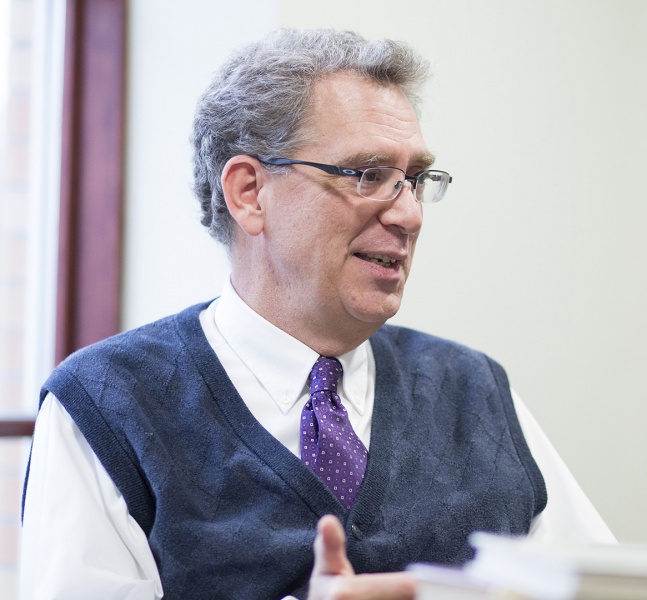I remember well the first time someone told me about the existence of the world wide web and the possibility of electronic mail. It was the spring of 1992, and I was in my second year of graduate school. I was thrilled with the possibility of sending mail without paying for U.S. postage and, as a rather hardcore libertarian, I felt this was the best way to circumvent the government monopoly on the postal service. However, I soon noticed that the new technology brought changes into my life.
Prior to this, I had prided myself on writing seven-, eight-, or even nine-page handwritten letters. My family and friends had filled our letters with news, with details of great adventures, with reviews of the latest books we had read and music we had heard. We filled the entire page with snippets of poems or lyrics, with some rather inexpert doodles; sometimes, I’d paste photos into the letter or squiggle in some band name such as Rush, Talk Talk, or Yes. There was an individualistic art to long-form letter correspondence.
I still have boxes and files full of these letters received from friends, and I cherish them as some of my finest possessions. I hope and trust the recipients of my letters feel the same. These letters represent small but mighty little communities: neighborhoods, suburbs, towns, republics, and – sometimes – dynasties of letters.
Now, I look at my computer and shudder. My inbox contains 10,763 unread messages and another 5,604 in the “junk folder,” predestined there by some algorithm I’ll never comprehend. (Calvin would scratch his head, as well.) When I look across social media platforms like Facebook and Twitter, I see anger – lots of it, on every hand. Mostly, though, I see a modern form of the ancient heresy of Manichaenism arise in all of its viciousness, pitting us against them. This is not how I envisioned communications developing all those years ago.
In his magisterial Letters from Lake Como, the German-Italian philosopher and theologian Romano Guardini argued that one could judge any technology by its humane quality. Does it leaven the human experience or diminish it? Does it make us more human or less human? Is it at our scale, or does it overwhelm us? Among the greatest of Christian humanists, Guardini was not alone in such an analysis and a fear. He shared them with Thomas Merton, Russell Kirk, J.R.R. Tolkien, E.F. Schumacher, C.S. Lewis, and Wilhelm Röepke.
As Aristotle famously wrote, the human person, by nature, is meant to live in community. Only in community do we sharpen our excellent qualities, attenuate our weaknesses, and pursue our acts of charity. Yet, what is community, and how does one come to love, understand, shape, and delimit community?
The grand Anglo-Irish statesman Edmund Burke argued that our true affections must begin at the most local and immediate level possible, recognizing what the Roman Catholics call subsidiarity, a manifestation of power at its most personal. We do not love abstractions such as the nation, for example, but we do love our fathers, our mothers, our siblings, our uncles and aunts, our cousins, our friends, our mentors, and our neighbors. Burke wrote:
We begin our public affections in our families. No cold relation is a zealous citizen. We pass on to our neighbourhoods, and our habitual provincial connections. These are inns and resting-places. Such divisions of our country as have been formed by habit, and not by a sudden jerk of authority, were so many little images of the great country in which the heart found something which it could fill. The love to the whole is not extinguished by this subordinate partiality.
Indeed, unless we love that which is near, we will never love that which is distant. Only by loving those who nurture and guide us can we begin to love those who protect them. Once we love our neighbors, we might love our country (if our country is lovely) and, from there, all creation.
Here’s the rub: When we write a letter to an individual or to a small group of individuals (say, a family), we create and leaven community. However, when we post something on Facebook or Twitter, we are creating abstractions of communities, not tangible ones. To put it in Burkean terms, a handwritten letter strengthens our little platoon. To tweet, though, has us screaming at the abstraction of a nation. As such, the intensely personal becomes the profoundly public, and, yet, it all remains personal.
At their worst, Facebook and Twitter destroy all bonds among women and men, and each person and each community loses touch with its past, with reality and its future. As such, it resembles what the great Harvard scholar Irving Babbitt wrote about the collectivist notions of the state. In pursuing an abstract collectivism, the state destroys “its historical continuity, its permanent self, as it were, that unites its present with its past and future. By an unprincipled facility in changing the state such as is encouraged by Rousseau’s impressionistic notion of the general will, the generations of men can no more link with one another than the flies of a summer. They are disconnected into the dust and powder of individuality.”
One could write something similar about the nastiest parts of social media. We become, each, flies of the summer in the collectivist morass of anger and division.
There is, of course, a huge, massive, gargantuan flaw in my argument, as well as in the arguments of Guardini and his allies, regarding technology. Technologies become humane through our own free will. That is, with proper ethics and understanding, we can do much to keep our technologies from escaping our own control and taking on a fate of their own. Yes, Facebook and Twitter can be brutal. But, they can also be beautiful. How many times have I sighed deeply and happily when seeing my friends and my former students – spread throughout the world – posting pictures of births and achievements? How many times have I sighed deeply and sadly when seeing my friends and my former students relating news of deaths and setbacks?
As angry and sad as social media can make me, the times in which it has done more good than harm are countless beyond calculation. With one Facebook friend, I started a lecture series. With another Facebook friend, I wrote a progressive rock album. With yet another Facebook friend, I lamented the loss of a family member. As I look across Facebook – a social network to which I’ve belonged for over a decade now – I see friends I’ve never actually met, but for and with whom I would gladly buy a beer, attend a concert (or a baptism), or start a political party. Last fall, I finally got to meet one of my oldest Facebook friends, Charles in New York. After all the encouragement we have given each other the past half-decade, our hugs were frequent and sincere. This very article came about because of a friendship on Twitter.
One of my favorite rock musicians, Mark Hollis (RIP), wrote a song in the 1980s, “Life is What You Make It.” It’s a catchy Steve Winwood-style track, and it revels, rather stoically, in the mysteries of free will. After all, nothing forces me not to write long, handwritten letters. Nothing forces me to be on social media. Nothing on social media forces me to react bitterly.
I still choose, as do you.
The next time you are on social media, and you see something bitingly absurd, forgive it, bless it, and sanctify it. See an anti-Semitic comment? Post a picture of Simon Wiesenthal without comment. See something anti-Christian? Post a passage from St. John. See something supporting abortion? Post a picture of an adorable baby. That is, every time we see the inhumane, we can choose to make it humane. We can make the technology work for humanity, not against it. In the end, we will all be a bit happier. After all, life, like social media, is what we make it.




